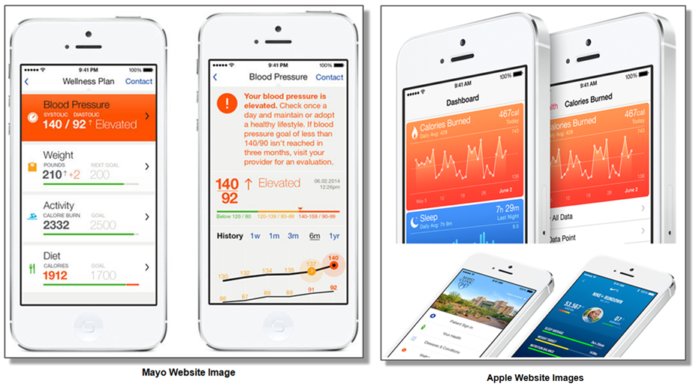
HARNESSING Apple’s new HealthKit system for patient care may have benefits but there are also big issues involving privacy and the accuracy of data, healthcare professionals said.
The Australian Medical Association said it would welcome the opportunity to meet with Apple to discuss how its HealthKit system and Health app could assist patients.
Apple’s new Health app can amass almost 70 types of health and fitness data on a phone, including blood glucose, blood pressure, body temperature, caffeine level, cycling distance, heart rate, potassium levels, sleep analysis and even falls.
The app can gather data such as steps walked from the phone’s sensors, let users add health information manually, and store data passed to it by devices such as wristband monitors and medical equipment.
AMA chair of the Council of General Practice, Brian Morton, said there was “goodwill” for discussions between doctors and Apple adapting HealthKit in Australia for patient care.
He said Apple first must engage the medical profession on how HealthKit would work and address safety issues. Industry and consumer health groups had to be involved. “We need to go further with it,” Dr Morton.
Apple was set to launch HealthKit last week as part of its iOS 8 operating system rollout but is now having to fix a bug spotted in its Health app.
In the US, Apple has already demonstrated its vision of the HeathKit system going beyond casually monitoring a user’s health and activities to full professional support.
Earlier this year it highlighted the Mayo Clinic’s interest in HealthKit. In one example, the Health app would save blood pressure measurements and alert a patient’s carer of data suggesting an abnormal or life threatening situation.
Stanford University is reported to be trialling HealthKit in partnership with Apple to monitor children’s blood sugar levels, and Duke University in North Carolina is reportedly developing a pilot scheme to track the health of cancer and heart disease patients.
Dr Morton said systems such as HealthKit had “a long way to go” before they could be relied on professionally. False alarms, where the app wrongly alerted that a patient’s health was endangered, and where it failed to notify carers of a real emergency, were potential issues.
Despite the delayed implementation, Australian developers are gearing to offer medical based apps that work with HealthKit. Appster Information Technology said it was developing a HealthKit app aimed at diabetes patients that monitored blood sugar levels.
The app provided alerts to GPs should blood sugar levels reach dangerously low levels and included a chat function so that patients could receive real-time advice from their GP.
Australian e-health blogger David More described HealthKit as “largely middleware”.
“At the back end you’re going to have electronic health record keeping systems of various sorts, ands it’s going to provide an interface to those, and at the front end you’re going to need some data capture,” he said.
There needed to be clinical trials to gauge how reliable the system would be, Dr More said.
He said HealthKit users could be worried about insurers accessing personal health data, although it was illegal in Australia for health insurers to charge different premiums based on changes to a customer’s state of health. But life insurers could alter premiums.
“At the moment you have a diagnosis that potentially alters your life expectancy, (life) insurers are very, very keen to find out about it.”
Medibank chief information officer Brett Winn said the organisation saw “a huge potential” for HeathKit as an aggregator of health data, but patient data would stay securely with Medibank.
Medibank would use the health data to advise members of the best plans for them and to assess the services they should offer.
A Bupa spokeswoman said that while it offered a range of online tools and apps focused on supporting people’s health, it did not have immediate plans to be involved with HealthKit.
HCF Medical Director Andrew Cottrill said it is early to know how the organisation might integrate Apple Health specifically into members’ health and wellbeing programs, “but in principle we see a lot of potential for personalised mobile apps in supporting our programs”.
Source: The Australian
